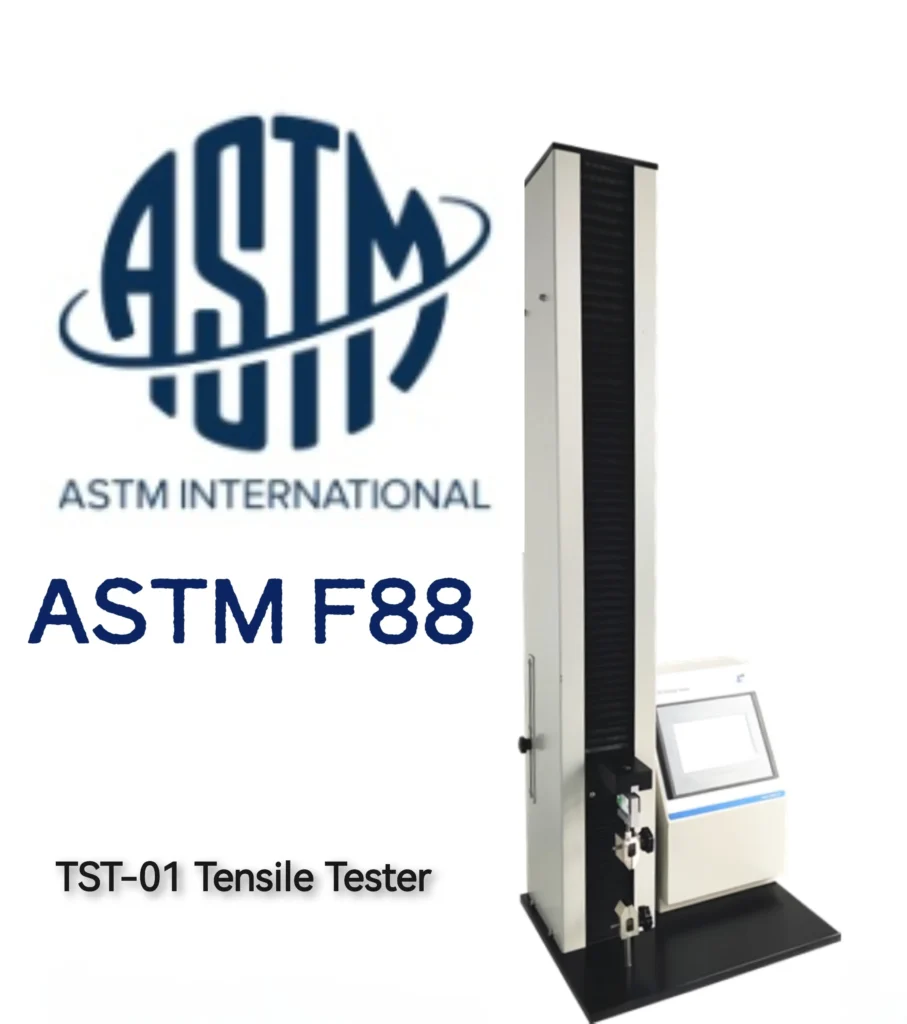
ASTM F88
Seal Strength Testing
Ensuring the seal integrity and tensile strength of flexible packaging materials is crucial across pharmaceutical, food, and medical sectors. One of the most recognized and widely adopted standards in this area is ASTM F88, which provides a detailed methodology for measuring the seal strength of flexible barrier materials. But seal strength testing is just one part of evaluating a film’s mechanical behavior. For comprehensive material performance assessment, plastic tensile strength test, PE tensile strength, elongation tensile test, and tensile and elongation test are equally critical.
This article explores ASTM F88, its test procedures, its connection with tensile and elongation properties, and how to implement it accurately using professional packaging test equipment like the TST-01 Tensile Tester by Cell Instruments.
Understanding ASTM F88 and Its Importance in Packaging
ASTM F88 outlines the standard test method for determining the seal strength of flexible barrier materials, such as plastic films, composite laminates, and heat-sealed pouches. It serves as a benchmark for process validation, quality control, and ensuring consistency in packaging seal strength.
The standard highlights three testing techniques:
-
Technique A: Unsupported seal during testing.
-
Technique B: 90° hand-supported orientation.
-
Technique C: 180° supported seal with rigid alignment.
These methods allow for flexible application depending on the packaging structure and failure mode, helping quality control professionals determine not only maximum seal strength, but also the average force and mode of failure (adhesive, cohesive, or delamination).
Connecting Seal Strength with Plastic Film Tensile Properties
While seal strength indicates the integrity of a heat seal, understanding plastic tensile strength and elongation is crucial for evaluating the material’s mechanical durability. This is particularly important for PE films, which are commonly used in medical, food, and industrial packaging.
The tensile strength of polyethylene is a key performance parameter. A poor tensile profile can cause premature tearing, delamination, or seal failure during storage and transport. Therefore, a tensile and elongation test complements ASTM F88 by providing a more holistic understanding of the packaging material’s behavior under stress.
How Do You Measure Tensile Strength and Seal Strength?
Both tensile and seal strength measurements require precision tensile testing equipment. According to ASTM F88, an appropriate tester must:
-
Apply uniform grip separation speeds (typically 200–300 mm/min),
-
Offer real-time curve plotting of force vs. grip travel,
-
Ensure accurate specimen clamping and stress distribution.
This is where Cell Instruments’ Tensile Tester becomes indispensable. Engineered for film tensile strength, seal strength, and elongation testing, the TST-01 ensures highly accurate, repeatable results with a wide range of material types and fixture configurations.
Key Features of the TST-01
The TST-01 Tensile Tester from Cell Instruments meets and exceeds ASTM F88 apparatus requirements. It enables the execution of:
-
Plastic tensile strength tests for films, laminates, and medical pouches,
-
Elongation tensile tests with programmable grip separation,
-
Heat seal strength tests using all three ASTM F88 techniques,
-
Film tensile strength assessments across varied packaging formats.
Highlighted advantages include:
-
Adjustable speed range (1–500 mm/min) to match specific test needs,
-
7″ HMI with real-time curve plotting,
-
PLC-controlled precision mechanics,
-
Support for tensile and elongation test, peel strength, and heat seal strength tests,
-
Compatibility with micro-printers and software systems for seamless result analysis.
Applications Across Industries
The TST-01 adapts seamlessly to diverse testing needs:
-
In pharmaceuticals, to ensure sterile barrier packaging complies with regulatory requirements,
-
In food packaging, to validate seal reliability and prevent contamination,
-
In medical device packaging, to assess tensile strength and seal integrity after sterilization.
Whether you’re testing PE tensile strength, conducting a tensile strength measurement, or analyzing a film’s seal opening force, the TST-01 is a reliable, versatile solution.
Conclusion
Accurately evaluating seal strength, tensile strength, and elongation is essential for packaging durability and regulatory compliance. The ASTM F88 standard provides the methodology, while instruments like the TST-01 Tensile Tester empower professionals with the tools to execute these tests precisely. By understanding and applying these test methods, quality assurance teams can ensure product safety, packaging performance, and customer satisfaction.
